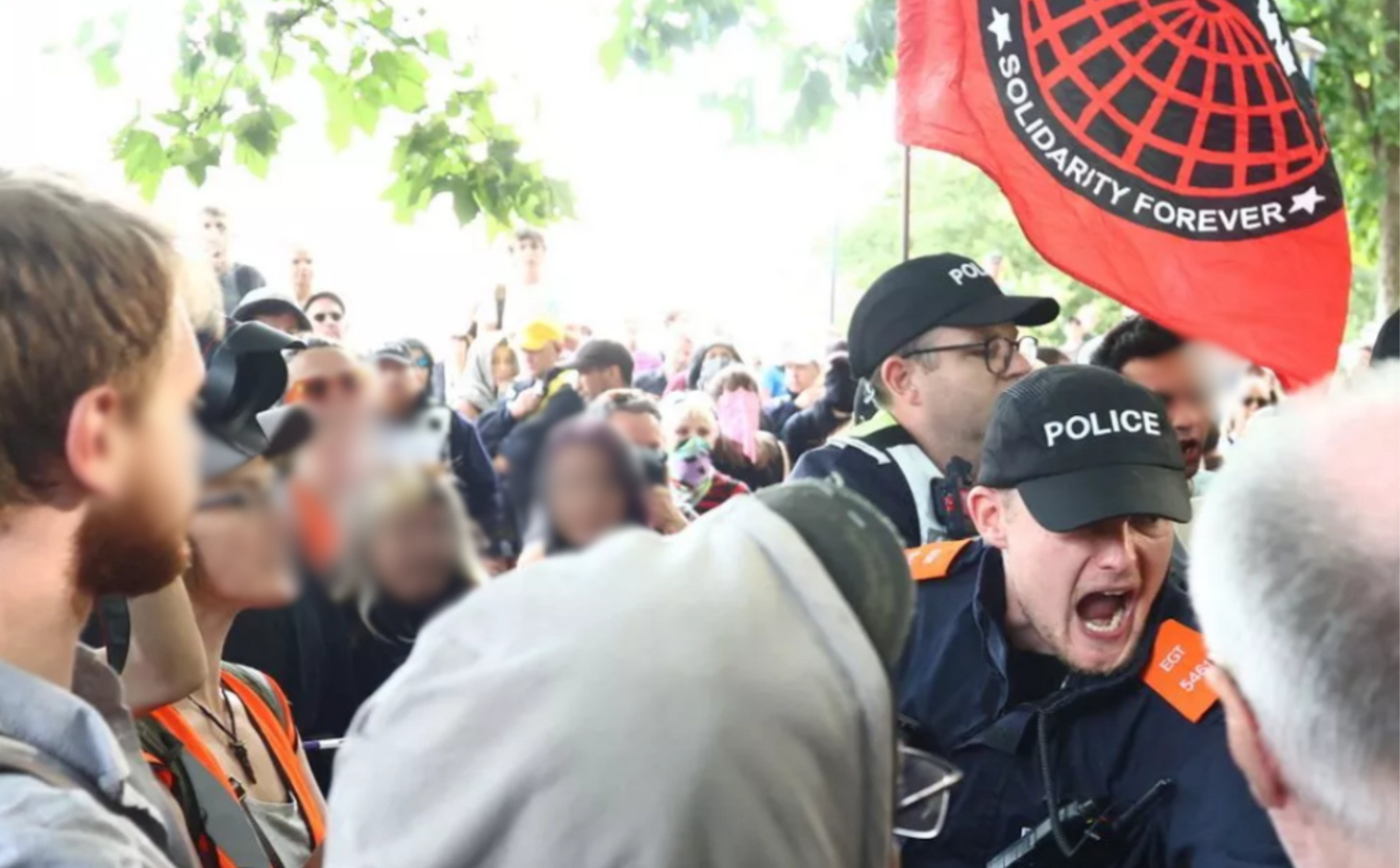It’s incredibly important to protect your identity and use secure methods of organising when you’re taking anti-fascist action, as you face risks not just from the police but from far-right groups.
Far-right groups sometimes “dox” anti-fasicst campaigners, publishing people’s photos, personal details and information online. Keeping your identity secure and wearing a mask to protests can help to protect you from this.
Here’s our key advice to keep yourself and your friends safer when attending anti-fascist protests:
- When far-right protests are announced, many new group chats spring up as people mobilise in response. But you can’t retrospectively put security measures in place; if you want to organise locally, start off using a secure platform like Signal and make sure you have set up an anonymous signal account to protect your identity.
- You should be mindful that large group chats risk not just police infiltration, but may have far-right sympathisers in them gathering information on you. This is another reason why we suggest you use an anonymous signal account, and consider what information is shared in large chats.
- Sharing the meeting point of a demo helps to mobilise people, but sharing detailed information on your plans can risk disruption.
- Wear a COVID mask and consider covering identifiable tattoos or features to help protect your health and privacy. Dress to blend in, not stand out – this is sometimes referred to as “grey block”.
- Always arrive / leave protests in a group or with a buddy. Sometimes far-right groups and police pick off individual protesters while they are travelling. Don’t get out signs and placards until you’re with others, and put on / remove your mask at a safe distance from the protest.
- As the risk of violence (both from the police and far-right) is greater at anti-fascist demonstrations, making time to build relationships of trust with others in your group and thinking through the levels of risk you’re comfortable with and how you will communicate and support each other while on a demonstration can help. We would strongly recommend debriefing after demonstrations and thinking about how to support each other both physically and emotionally.
- Police tend to use slightly different powers at anti-fascist demonstrations, and sometimes rely on powers governing anti-social behaviour as well as common public order laws. Make sure you know the five key messages before heading out, and check this mini-briefing from Green and Black Cross to see extra information on police powers. Kettling is more likely as police seek to ‘contain’ protesters. Carry a bustcard with you.
- Avoid taking your phone with you, and if you have to, make sure it’s set up securely. As kettling can be more likely, make sure you pack water, snacks, any required medication, and weather proof clothing in case you get stuck somewhere.


Leave a Reply